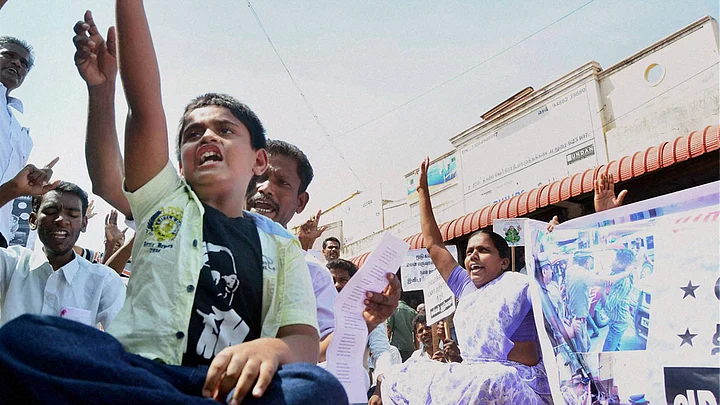While freely available alcohol certainly gives a kick, it is also globally recognised that liquor’s illegal status furnishes and nurtures the soil in which organised crime and cynical politics grows. Even as most of India remains wet zone, the DMK’s anti-liquor movement which gathered pace over the past week, is a reminder of how failing politicians pick on prohibition to mobilise voters when public opinion is overwhelmingly in favour of free availability of non-spurious alcohol.
We have seen in prohibition states – Gujarat, Mizoram, Nagaland and Manipur and now to some extent Kerala – that rather than serving any public health or social purpose, the sumptuary law has engendered an extensive alcohol black market with the full participation of key political personalities and of course the underworld. Puritan politicians, not quite chaste in other personal habits, would not want members of the public to fall victim to alcohol’s seductive wiles.
But in 1998, while on a Home Ministry-sponsored visit to Manipur, I had the occasion of imbibing alcohol with ministers of that state, a binge which went on amidst guitar-strumming, throaty singing well past midnight. That night’s boisterous conviviality was produced by alcohol that came in from neighbouring states or perhaps army stocks. Likewise, I had the luxury of enjoying whiskey in Ahmedabad – locally-procured – while covering the 2002 Gujarat riots.
Does Prohibition Help?
Prohibition is a government arrangement by which citizens are kept from intoxicating liquor for beverage purposes. Given that the abuse of alcohol in any particular state is an extremely serious social evil, does the government of any state have the moral right to use the extreme means of totally prohibiting the manufacture, storage, sale and transportation of alcohol? Government policies in some Indian states have long sought to regulate the consumption of goods that are perceived to either be or lead to behaviour that is “sinful.”
India’s so-called puritan states, where other vices flourish in the open, the respective governments have sought to force new generations in abstemious habits, but wink at the thriving black market in alcohol. The question how to control consumption has become embroiled in other fundamental issues about the role of the government in managing both markets and private behaviour.
So, who profits from the crime? For sure, prohibition is a splendid racket for everyone.
While there is no official statistics in India on the noble effects of prohibition, America’s experience with her National Prohibition that lasted just 13 years (1920-33) suggests that alcohol consumption fell sharply at the beginning of the imposition of the coercive law. But during the next several years as vigilance became lax because of the growth of a nexus of the mafia and corrupt public officials, alcohol consumption went up.
The US experience has thrown up evidence which affirms sound economic theory which predicts that prohibition of mutually beneficial exchanges is doomed to failure. While the gains on reduced abstention is marginal, the law removes a significant source of tax revenue. More dangerously, prohibition pushes people to take to life-threatening drugs as has been witnessed in India’s northeast.
(At The Quint, we question everything. Play an active role in shaping our journalism by becoming a member today.)
